
Currently, in localities, crayfish ( scientific name Procambarus clarkii) are sold openly at markets or on social networks for about 400,000 VND/kg. It is worth mentioning that most crayfish are smuggled by people for sale without knowing the harmful effects. Specifically, this is an omnivorous species, likes to dig deep burrows and can destroy crops; at the same time, it damages the dike system, erodes rivers and streams and destroys native shrimp and fish species... More dangerously, this species is the host that transmits and spreads many dangerous diseases, such as: White spot disease, fungus on shrimp and some diseases for mammals...
Previously, some provinces such as Ninh Binh, Phu Tho and Ha Nam imported this shrimp species for experimental breeding. However, due to the dangerous effects of crayfish, the Ministry of Agriculture and Rural Development (MARD) has included it in the list of alien organisms prohibited from import and not developed for breeding or propagation; if discovered, it must be destroyed immediately, and at the same time, acts of buying, selling and releasing this type of shrimp into the environment must be strictly punished...
In Appendix IV issued with Decree No. 37/2024/ND-CP dated April 4, 2024 of the Government amending and supplementing a number of articles of Decree No. 26/2019/ND-CP dated March 8, 2019 detailing a number of articles on measures to implement the Law on Fisheries, crayfish (Procambarus clarkii) is not included in the list of aquatic species permitted for business in Vietnam. In addition, Circular No. 35/2018/TT-BTNMT dated December 28, 2018 of the Ministry of Natural Resources and Environment stipulates criteria for determining and promulgating the List of invasive alien species, Procambarus clarkii is included in the list of invasive alien species...
Because of the great harm caused by this species, many countries have regulations prohibiting the farming and breeding of crayfish. Some countries allow farming, usually for economic purposes and in harsh natural conditions, but with strict management and control regulations.
Not only crayfish, in the past we have paid the price for raising exotic creatures that are harmful to the environment, such as: Golden apple snails, red-eared sliders, red-claw shrimp, etc. These animals all have the common characteristics of being omnivorous, reproducing quickly, adapting to many different living environments; destroying crops, spreading dangerous diseases to plants and animals. However, this species of crayfish is even more dangerous than the above exotic creatures because of its characteristics of crawling very quickly, spreading widely, being difficult to destroy and its ability to destroy crops many times stronger than the golden apple snail.
Therefore, the issuance of the above document by the General Department of Customs is considered a practical solution, demonstrating strict enforcement of regulations on the import and sale of aquatic products; thereby, contributing to the protection of indigenous biodiversity and public health, avoiding negative impacts on agricultural production in our country. However, for these solutions to be truly effective, each citizen needs to raise their awareness, knowledge and proactively say no to smuggled crayfish; promptly detect and report violations of illegal trading, storage and transportation of crayfish to the authorities, and strengthen advocacy and propaganda to each residential area, especially border areas, about the harmful effects of this species.
Along with that, not only the customs sector but also departments, sectors and organizations from the central to local levels and each citizen need to strongly participate and join hands to prevent violations related to crayfish.
Source





![[Photo] Prime Minister Pham Minh Chinh inspects the progress of the National Exhibition and Fair Center project](https://vphoto.vietnam.vn/thumb/1200x675/vietnam/resource/IMAGE/2025/5/19/35189ac8807140d897ad2b7d2583fbae)



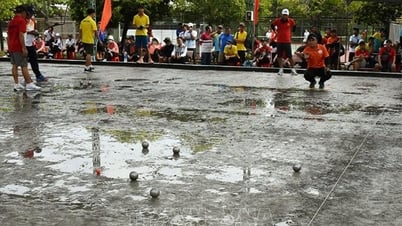


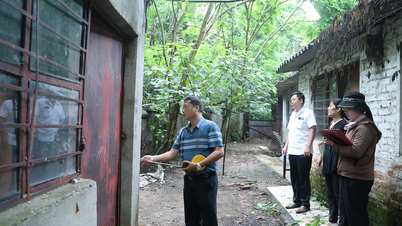
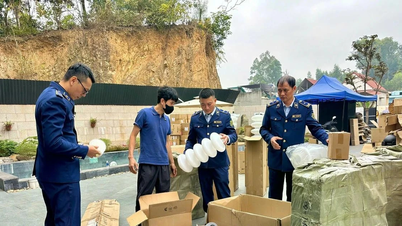



























































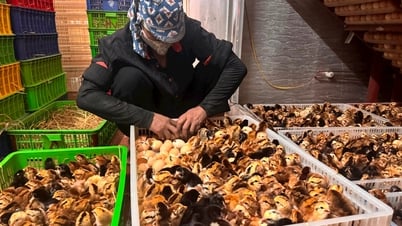




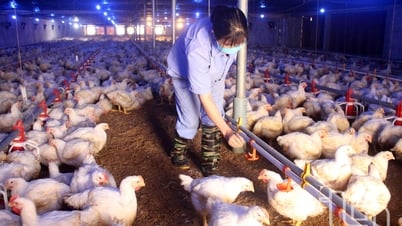





![[VIDEO] - Enhancing the value of Quang Nam OCOP products through trade connections](https://vphoto.vietnam.vn/thumb/402x226/vietnam/resource/IMAGE/2025/5/17/5be5b5fff1f14914986fad159097a677)







Comment (0)